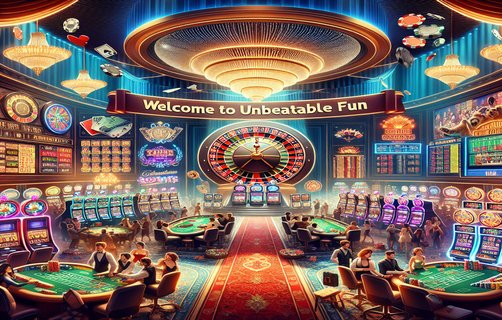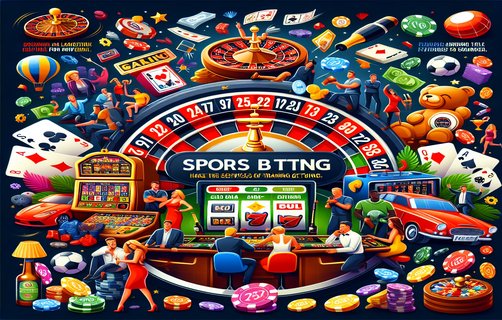Mastering the Game: Advanced Poker Strategies for Success
पेशेवर पोकर रणनीतियों में महारत हासिल करें

Poker is often viewed as a game of chance, but beneath the surface lies a complex blend of skill, strategy, and psychology. To thrive in this high-stakes environment, one must hone specific skills, from movement recognition to emotion regulation. Each of these elements falls under the broader umbrella of strategic play, and understanding them can significantly enhance your game.

Movement Recognition involves observing opponents' behaviors, reveals tentativeness and confidence alike. Assessing their betting patterns and physical cues can provide a substantial edge, allowing you to better predict their next move. A strong player identifies shifts in opponents' posture or changes in their betting tempo, recognizing when they may be bluffing or holding a strong hand.
The Dealer Strategy Analysis Steps are critical for a comprehensive understanding of poker dynamics. Start with establishing a baseline—watch the dealer's actions and the reaction of players at the table. Are they consistently conservative, or do they take risks? Recognizing these tendencies can inform your approach, helping you decide when to fold or raise your stakes. This process is not merely observational; it requires analytical thinking and the ability to adapt in real-time, essential for any serious poker player.
Mistake Correction plays a vital role. Recognizing and addressing your own errors is as important as spotting mistakes in your opponents. After a game, take time to review your plays and assess where you deviated from optimal strategy. Perhaps you invested too heavily in a weak hand or misread the board; learning from these missteps is key to improvement.
Maintaining Mental Calm Focus is crucial in an environment rife with tension and unpredictability. Poker players who can regulate their emotions often make better decisions. Utilizing breathing techniques, visualization, or mindfulness can help you stay calm under pressure, ensuring that your focus remains sharp.
Understanding Odds Formulas is essential for any advanced poker player. Familiarizing oneself with the fundamentals of pot odds, implied odds, and expected value calculations can dictate not just the way you play your hand, but also how you manage your bankroll over time. Numbers can be intimidating, but a competent grasp on these formulas allows you to make statistically sound decisions rather than relying solely on gut feelings.
Betting Trap Management involves being acutely aware of the dynamics at play when you decide to bet. Are you establishing a trap for your opponents, or are you falling into one? The ability to evaluate the situation and distinguish between aggressive and defensive betting can greatly influence your success rate.
Emotion Regulation cannot be overlooked. Emotions like fear and frustration can lead even the best players astray. Developing strategies to keep emotions in-check is critical; whether through positive affirmations, breaks during gameplay, or developing a 'poker face' to mask your feelings at the table, each option has its merit.
In conclusion, mastering poker involves more than just understanding the cards; it requires a holistic approach that encompasses strategy, psychology, and self-management. With movement recognition, mistake correction, and awareness of both dealer strategies and betting traps, combined with emotional control and a firm grasp on odds, any player can elevate their game. Poker is a dance of skill and psychology, and the players who learn to navigate these elements confidently will emerge victorious.
पोकर को अक्सर एक खेल के रूप में देखा जाता है, लेकिन इसके पीछे कौशल, रणनीति और मनोविज्ञान का एक जटिल मिश्रण है। इस उच्च-दांव के वातावरण में फलने-फूलने के लिए, एक को विशेष कौशल विकसित करने होंगे, जैसे गति पहचान और भावनाओं का प्रबंधन। ये तत्व रणनीतिक खेल के व्यापक क्षेत्र के अंतर्गत आते हैं, और उन्हें समझना आपके खेल को महत्वपूर्ण रूप से बढ़ा सकता है।
गति पहचान का तात्पर्य प्रतिस्पर्धियों के व्यवहारों का अवलोकन करने से है, जो आत्मविश्वास और अनिश्चितता को अनावरण कर सकता है। उनके दांव लगाने के पैटर्न और शारीरिक संकेतों का मूल्यांकन करने से एक महत्वपूर्ण बढ़त मिल सकती है, जिससे आप उनकी अगली चाल के बारे में बेहतर भविष्यवाणी कर सकते हैं। एक मजबूत खिलाड़ी प्रतिकूल के संकेतों में बदलाव की पहचान करता है, जैसे कि उनका आसन या दांव लगाने की गति में बदलाव, यह पहचानते हुए कि वे कब धोखा दे सकते हैं या मजबूत हाथ रख सकते हैं।
डीलर रणनीति का विश्लेषण करने के लिए कदम महत्वपूर्ण हैं। एक आधार स्थापित करने से शुरुआत करें—डीलर के कार्यों का अवलोकन करें और तालिका पर खिलाड़ियों की प्रतिक्रियाओं को देखें। क्या वे लगातार सतर्क हैं, या वे जोखिम उठाते हैं? इन प्रवृत्तियों को पहचानना आपके दृष्टिकोण को सूचित कर सकता है, helping you decide when to fold or raise your stakes. इस प्रक्रिया में केवल अवलोकन नहीं है; यह विश्लेषणात्मक सोच और समय में अनुकूलन करने की क्षमता की आवश्यकता होती है, जो किसी भी गंभीर पोकर खिलाड़ी के लिए आवश्यक है।
गलती सुधार एक महत्वपूर्ण भूमिका निभाता है। आपकी स्वयं की गलतियों को पहचानना और संबोधित करना आपके प्रतिकूलों में गलतियों को पहचानने के रूप में उतना ही महत्वपूर्ण है। एक खेल के बाद, अपने खेल की समीक्षा करने में समय निकालें और अनुमान लगाएं कि आप आदर्श रणनीति से कब भटके। शायद आपने कमजोर हाथ में बहुत अधिक निवेश किया या बोर्ड को गलत पढ़ा; इन गलतियों से सीखना सुधार के लिए प्रमुख है।
मानसिक शांति बनाए रखना एक ऐसे वातावरण में महत्वपूर्ण है जहां तनाव और अनिश्चितता प्रबल होती है। जो पोकर खिलाड़ी अपने भावनाओं को नियंत्रित कर सकते हैं, अक्सर बेहतर निर्णय लेते हैं। श्वास पर ध्यान केंद्रित करने वाली तकनीकों, दृश्य रूपांतरण, या माइंडफुलनेस का उपयोग करना आपको तनाव के तहत शांत रहने में मदद कर सकता है, यह सुनिश्चित करते हुए कि आपका ध्यान ताजा रहे।
अवसर सूत्रों को समझना किसी भी उन्नत पोकर खिलाड़ी के लिए आवश्यक है। पॉट ऑड्स, इम्प्लाइड ऑड्स, और अपेक्षित मूल्य की गणनाओं की बुनियादी बातों से खुद को परिचित करना न केवल आपके हाथ का खेल निर्धारित कर सकता है, बल्कि समय के साथ आपके बैंक रोल के प्रबंधन का तरीका भी। संख्याएं डरावनी हो सकती हैं, लेकिन इन सूत्रों पर एक सक्षम पकड़ आपको अनुमानित निर्णय लेने में मदद कर सकती है, न केवल आंतरिक भावनाओं पर निर्भर रहना।
बेटिंग ट्रैप प्रबंधन का तात्पर्य उस स्थिति के प्रति सतर्क रहने से है जब आप दांव लगाने का निर्णय लेते हैं। क्या आप अपने प्रतिकूलों के लिए एक जाल बना रहे हैं, या आप एक में गिर रहे हैं? स्थिति का मूल्यांकन करने की क्षमता और आक्रामक और रक्षात्मक दांव के बीच भेद करने से आपकी सफलता दर पर काफी असर पड़ सकता है।
भावना नियंत्रण को नजरअंदाज नहीं किया जा सकता। डर और निराशा जैसी भावनाएँ सबसे अच्छे खिलाड़ियों को भी भटका सकती हैं। भावनाओं को नियंत्रण में रखने के लिए रणनीतियाँ विकसित करना महत्वपूर्ण है; सकारात्मक पुष्टि, खेल के बीच ब्रेक, या तालिका पर अपने भावनाओं को छिपाने के लिए 'पोकर चेहरा' विकसित करना, प्रत्येक विकल्प का अपना महत्व होता है।
अंत में, पोकर में महारत हासिल करना केवल पत्तों को समझने से अधिक है; यह रणनीति, मनोविज्ञान और आत्म-प्रबंधन का समग्र दृष्टिकोण चाहिए। गति पहचान, गलती सुधार और दोनों डीलर रणनीतियों और बेटिंग ट्रैप के प्रति जागरूकता के साथ, भावनात्मक नियंत्रण और अवसरों पर गहरे ज्ञान के साथ, कोई भी खिलाड़ी अपने खेल को बढ़ा सकता है। पोकर कौशल और मनोविज्ञान का एक नृत्य है, और जो खिलाड़ी इन तत्वों को आत्मविश्वास से नेविगेट करना सीखते हैं, वे विजय की ओर बढ़ेंगे।

comments
AceHigh
This article really dives deep into the psychological aspects of poker! Love it!
BluffMaster
The tips on emotion regulation are game-changing. I've been letting my emotions dictate my play too often.
ChipStacker
Great reminders about betting traps. It's so easy to fall into them if you're not careful.
RiverRat
Finally, someone talks about mistake correction! It's a crucial part of improving your game.
FoldOrHold
Understanding odds formulas is essential! I wish I paid more attention to that earlier in my poker journey.
PokerNinja
Movement recognition is what separates the amateurs from the pros. This article nailed it!